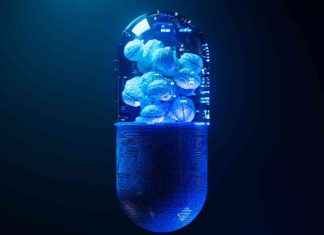Indicating a renewed approach under the new Donald Trump administration, Navy Adm. Harry B. Harris Jr., the commander of the U.S.-Pacific Command, inaugurated the annual multinational Cobra Gold military training exercise in Thailand Tuesday, urging the country to restore democracy while emphasizing that the U.S. needs “a strong and stable ally” in Southeast Asia.
“We look forward to Thailand’s reemergence as a flourishing democracy because we need Thailand as a strong and stable ally…we need Thailand to get back to being the regional and global leader that it always has been,” Harris said, making a veiled reference to the 2014 military coup that overthrew a democratically elected government. In response to the coup, the U.S. froze millions in military aid due to the federal “coup clause” that mandates cutting off direct foreign assistance to any country in which a government is deposed by coup until democratic and civilian rule is restored.
The Cobra Gold exercises, back in its 36th iteration, is being attended by some 3,600 U.S. soldiers this year, along with participants from 29 countries, including China, India, Singapore, South Korea and Malaysia, who are either involved in or are observing the exercises.
U.S. Admiral Harry Harris, commander of the Pacific Command (L) and Thailand Chief of Defence Forces General Surapong Suwana-Adth (C) and U.S. Ambassador to Thailand Glyn Davies pose during the opening ceremony of the Asia-Pacific multilateral military exercise known as Cobra Gold, at Sattahip Royal Thai Marine Corps Base in Chonburi, Thailand Feb.14, 2017. Photo: Reuters/Chaiwat Subprasom Soldiers from different Asia-Pacific countries attend the opening ceremony of the multilateral military exercise known as Cobra Gold, at Sattahip Royal Thai Marine Corps Base in Chonburi, Thailand Feb.14, 2017. Photo: Reuters/Chaiwat Subprasom Soldiers from different Asia-Pacific countries attend the opening ceremony of the multilateral military exercise known as Cobra Gold, at Sattahip Royal Thai Marine Corps Base in Chonburi, Thailand Feb.14, 2017. Photo: Reuters/Chaiwat Subprasom
“This high-level participation demonstrates a growing commitment to do the hard work and increase interoperability among our militaries now so that we know what works when crisis strikes,” Harris said.
Gruesome pictures from past events have shown U.S. Marines drinking cobra blood, eating scorpions and insects and even beheading live chickens while taking part in the jungle survival course. Marines were reportedly trained in several jungle survival techniques by Thai Navy instructors that included hunting down snakes before being given a chance to eat its entrails.
U.S. Marine inflates a cobra skin after removing its entrails during a jungle survival exercise in Chon Buri Province Photo: REUTERS/Sukree Sukplang A U.S. Marine picks out bugs during the Cobra Gold 2012 joint military exercise at a military base in Chon Buri Province Photo: REUTERS/Chaiwat Subprasom A U.S. Marine eats a scorpion during a jungle survival exercise with the Thai Navy at a military base in Chon Buri Province. Photo: REUTERS/Chaiwat Subprasom A U.S. Marine puts a dead snake in his mouth during the Cobra Gold 2012 joint military exercise, at a military base in Chon Buri Province Photo: REUTERS/Chaiwat Subprasom A U.S. Marine drinks the blood of a cobra during the Cobra Gold 2012 joint military exercise, at a military base in Chon Buri Province. Photo: REUTERS/Chaiwat Subprasom REUT
“This exercise will test us in realistic and complex ways…earnest collaboration with open minds throughout our entire time together will allow us to learn with each other and from each other,” Harris said.
Harris also highlighted several other military drill and events to feature in the 2017 Cobra Gold, which he described as the largest theater security cooperation exercise in Asia. They include an amphibious assault demonstration, noncombatant evacuation operation, humanitarian civic action project site dedication and combined arms live fire exercise.
The exercises will continue until Feb. 24.
Our editors found this article on this site using Google and regenerated it for our readers.





